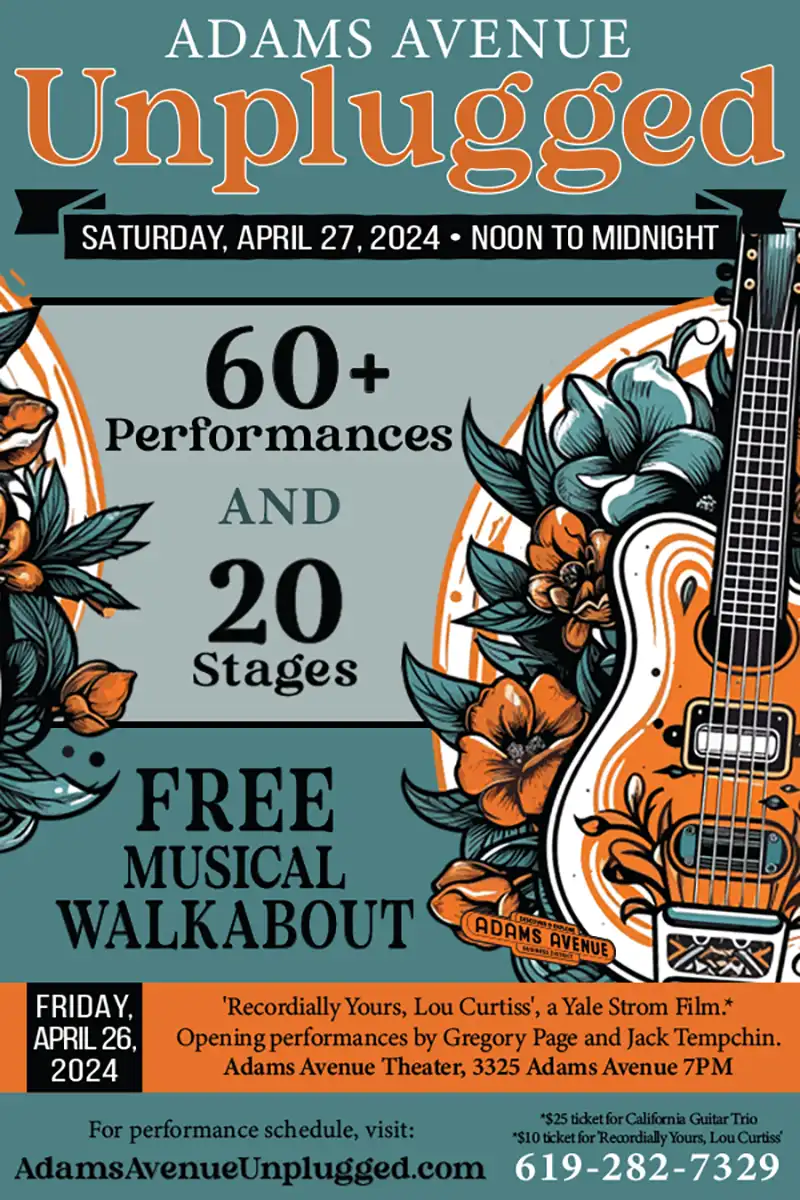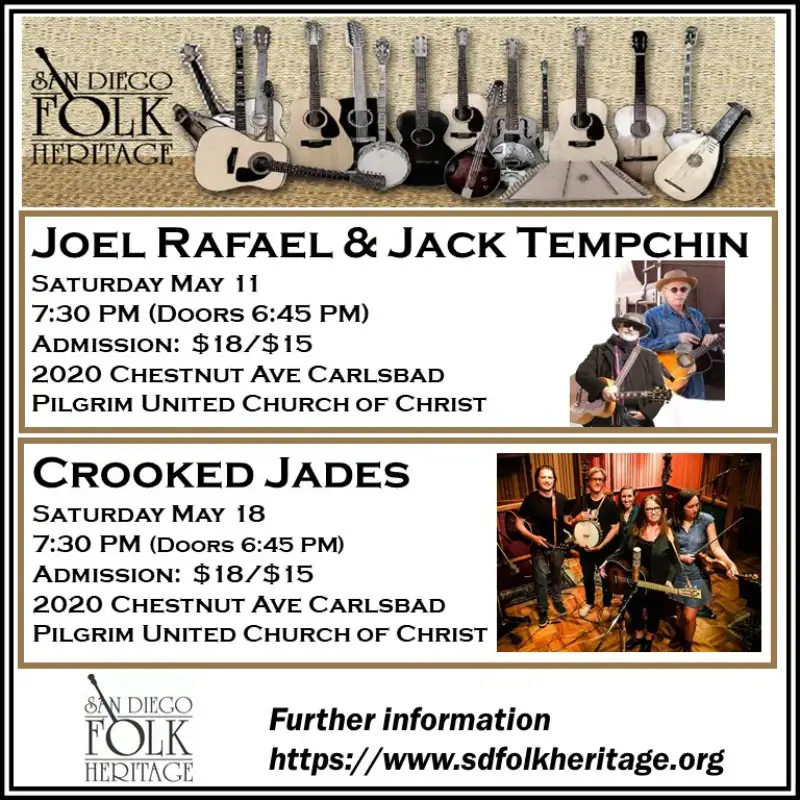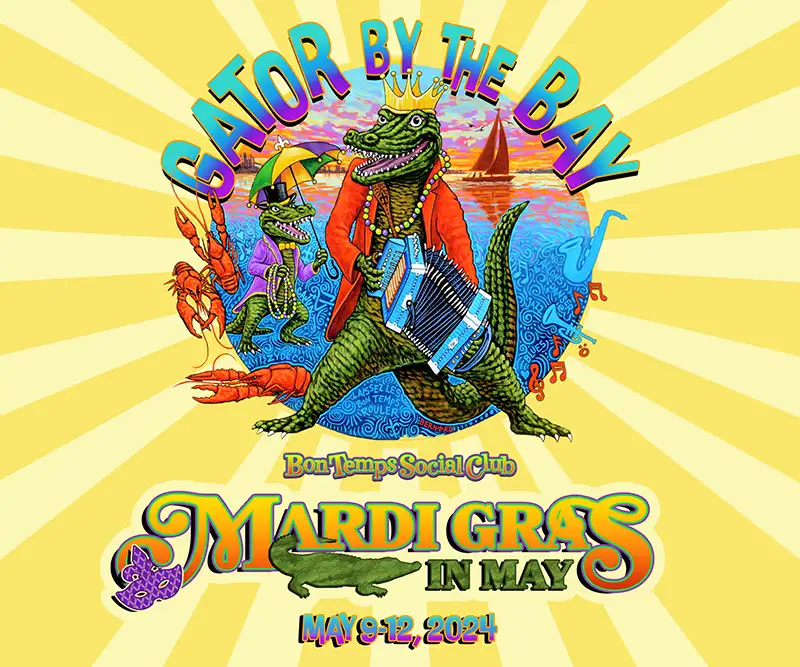Featured Stories
Nancarrow: Simple Things Mean a Lot
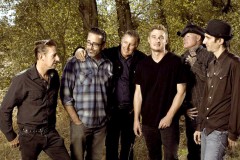
Nancarrow: Buzz Campbell, Ron Kerner, Joe Weisiger, Graham Nancarrow, Russell Hayden, Joey Guevara. Photo by Cameron David Smith.
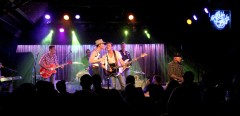
Nancarrow at a recent show at the Belly Up. Photo by Dennis Andersen.
It’s California country, with a healthy portion of energy that comes from playing punk rock. Describing his self-named alternative-country band, Graham Nancarrow doesn’t hesitate to cite his rock ‘n’ roll roots.
“I’m a good friend with my bass player Joe (Weisiger). I was playing in punk bands in high school, through 2011,” says Nancarrow. “He’d heard some country songs that I’d written and kind of had the idea that maybe we could start a country band. He knew just the guys to call, because he had played in a band called the Millionaires through the ’90s; they’d been playing in a band together for decades. So he called them up and we had a rehearsal, and I showed them my songs and everybody was in. Once they heard the songs they were down with the idea of playing country music, all the roots were there.”
The personnel, along with Graham’s acoustic guitar and lead vocals, included Russel Hayden, who contributed lap steel guitar, banjo, and harp to the sound along with background vocals and Ron Kerner’s drums to supplement Weisiger’s bass.
The new group had a good idea of what they wanted to do and where their roots came from.
“Definitely California country music like Buck Owens, Dwight Yoakam, Merle Haggard, even Creedence Clearwater Revival — any band that had a little bit of twang — in California, was an inspiration for us, because otherwise there’s no such thing as California country through the years. I had a huge background in punk and it definitely shows in our rock side, Social Distortion is another band that influenced us.
“We didn’t know exactly where it was going to take us. We thought traditional country, old school, throwback country was what we were going for. Then, naturally the band was going to take its course when everybody sat down and picked up their instruments. We found out we were a little harder rocking country band, and have that other wild side.”
They also didn’t get into the new country scene to rescue the genre; it seemed like more of an organic process. But with country music in SoCal taking off, they’re happy to ride the wave.
“I didn’t go into this thing thinking that we were going to revive anything. I thought for sure we would be the outcasts, the outlaws that we’ve always been. Each one of us — we were all trouble makers growing up — are all good dudes. My point is, we’re not trying to revive anything but we’re super excited because there has been a revival.”
The group, before a change of guitarists and the addition of a keyboard player, released an EP in 2012, Valley of the Deer, the title based on the Nancarrow family coat of arms. There were few signs of raucous rock origins in the strong twang of Graham’s original songs, like “Drinking Again” and “Ol’ Hickory,” which had more of a Haggard vibe than a surf/punk one. They stayed busy, putting out Heart in 2013, another EP, this one dedicated to Graham’s dad, longtime San Diego TV news personality Loren Nancarrow, who would pass away in late 2013. The somber dedication belied an album of good-time music that included such full throttle tunes as “Party” and “Fun,” plus a title tune that is a barn-burning, high-octane country rock gem.
The band started snagging regular nominations for Americana recognition at the San Diego Music Awards. It was growing, too. Heart featured Joey Guevara on piano as a guest artist, and Buzz Campbell was soon to join on guitar.
“We lost one of our guitar players and knew just who to call. We’d known Buzz from around the scene; he’s very well respected. It’s been about eight months now that he’s been in the band, a little under a year. We’re all really good friends, and that’s what’s really important.” Guevara and Campbell are both members of the group that recorded the latest, full-length CD, Simple Things.
**************
The Tuesday night crowd is drifting into the Belly Up Tavern, the wooden walls still flush from a recent, surprise late night visit from some wealthy, British senior citizens (the Stones). Beneath the huge plastic shark and mirror ball, country music fans cluster for a double CD release party by Nancarrow and LA artist Sam Outlaw. By 8:35pm 300 or so people are grooving to some ear-catching steel guitar/deep harmony blends from Outlaw’s five-piece band (especially on “Angeleno”), as both front men join to swap verses on Haggard’s “Tonight the Bottle Let Me Down.”
Solana Beach is Nancarrow country, just a few miles from Graham’s childhood stomping ground in Olivenhain, and the locale suits him and his group. They take charge from the first measure, digging into their powerhouse country rocker “Heart,” then surging into more of the same with “I’m Gone” and “Drinkin’ Again” without taking any rest between tunes. Graham’s light blue blazer with sequin cactus designs is history by the third of these early album tunes, when “Simple Things,” the title cut from the new CD, has everyone’s attention.
The band’s first two releases, with eight and six tracks, were heavy on the party tunes, but the new one has some music that seems to look back at Graham’s younger days: when he sings “Elvis,” it starts with piano as he remembers the first time he heard the King. Soon afterward, he is singing about his dad raising him right in “Sprinklers” and relating how he was a kid “pissing off the neighbors.” If there is a soft moment at all in Nancarrow’s take-no-prisoners show, it may be in the juxtaposition of this tune and the following track “Summertime,” about having good times in July with friends and family. Soon it is back to the accelerator, though, for “California Plates,” pushing the beat hard; he’s grown up, he has one hell of a girlfriend, and is listening to Merle, a truck driving man whose band is right now rocking the house.
Graham has stage presence to spare, but he isn’t the only one making an impression. Besides being the other ingredient in the group’s harmonies, Hayden’s double-neck lap-steel is distinctive in both their harder and softer tunes. Campbell’s quicksilver, rockabilly fills are pulled from a well-worn red Gretch, often triggering riff exchanges with Hayden. Guevara has a more subtle role, often bringing in the slower material with organ or piano riffs, while the heartbeat is the solid and nonintrusive bass and drum unit of Weisiger and Kerner, working together in smooth unison. If these two were playing badly, they would stand out; they don’t, but their firm foundation helps the others to do so.
By the end of the 1-5-4 grinding beat of “Good Times” and the lap-steel wah-wah tour de force “Fishin’,” the smoke machine at the back of the stage isn’t the only thing generating steam. Graham and company have the crowd in hand, and the encore “Party” is both art imitating life and a triumph for Nancarrow.
**************
Graham writes the material and describes his songwriting process as almost always melody first, then lyrics: he needs an acoustic guitar, a piece of paper and his phone to record it, chords first.
“But sometimes, like on our new record, the first song “Sprinklers,” I wrote that a cappella on the way home from Arizona,” Graham says, “And I brought the chorus and the music in afterward. I kind of go different ways but primarily work melody then lyrics.”
The new album has some other differences from the previous, hard-partying EPs: the live songs from the show about his childhood aren’t a fluke.
“[The new record is] autobiographical for sure. I learned a lot over the past couple of years — going through [the death of his father] and learning how short life is. So I really came to find myself and that’s when I think I started to look deeper in life a little more; that stuff is actually coming through. Not that the other ones aren’t true; there’s just a lot of depth to this stuff and it’s a lot about real life. And I think my dad’s passing kind of forced me to look at life from a different perspective, that is: today could be your last. Say everything you want to say. People do care, they do want to hear after all. Sometimes I feel like no one wants to hear about this or that, and a couple of questions come along, like ‘What’s this song about?’ and I realize the music is serving a purpose. I’m supposed to write about that; it’s my therapy to write and perform it.”
Asked about the local country music scene, Graham is full of praise.
“San Diego’s music scene has been really great to me and my band as well, especially for the genre we’re running in. I didn’t think it would be so well received. I thought that I’d get shit for playing in a country band and living by the beach, even though I had credentials, growing up on a farm,” he says.
“We’ve been received with open arms. The most common thing I hear in San Diego is, ‘You know, I hate country music, but I really like what you guys did.’ That’s like the biggest compliment you can have, and I get it, I understand it. We’re not in the country music capital of even the state.
“Something happened and all of a sudden there is all this country music coming out of California. Sam Outlaw just started this year and he’s blowing up. Everyone is thinking that it is hip now and we just happened to come in at the right time, which is perfect. I’m just glad that we were ahead of the curve.”
And he feels that both he and the band have accomplished something special with Simple Things.
“I think this new record has been a really good record to say what we’re all about. The first couple were like party, drinking, old school music; this one has really gotten down to what I’m all about, who I’m all about, and it’s definitely given the musicians in my band a chance to show everyone what they’re all about. They’re just phenomenal, I’m lucky to get to work with them, to have them on my record forever — the record will be around when I’m gone — when we’re all gone, so it’s special, you know?”


